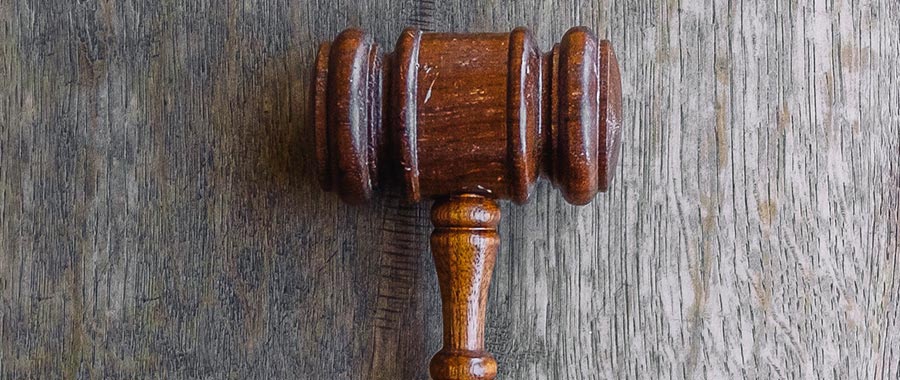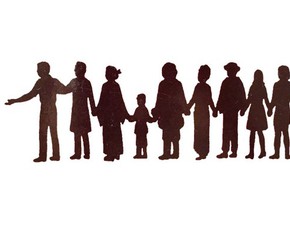The views expressed in our content reflect individual perspectives and do not represent the authoritative views of the Baha'i Faith.
Why do religions have laws? Do they exist primarily to promote our spiritual well-being, or are they just meant to control people?
Since the Baha’i laws were revealed by Baha’u’llah, the prophet and founder of the Faith, the new set of spiritual and societal laws he revealed exist solely to promote and enhance the spiritual well-being of every person who voluntarily adheres to them.
This is one reason that the Baha’i Faith has no clergy, no proselytizing, and no forced conversion—the Baha’i Faith forbids any coercion in matters of belief. Becoming a Baha’i and choosing to abide by Baha’i law is a completely voluntary process, one meant to educate the soul through the independent investigation of the truth.
In general, we can infer from Baha’u’llah’s Most Holy Book that all religious law, whether personal and private or civil and public, has as its animating purpose the education of the human soul:
Throughout, it is the relationship of the individual soul to God and the fulfillment of its spiritual destiny that is the ultimate aim of the laws of religion. – The Universal House of Justice, from the Introduction to Baha’u’llah’s Most Holy Book, p. 4.
It might seem, then, that the process of punishing an individual for violation of law would primarily concern those laws that overtly affect the public good, those laws that protect the rights of the citizenry. But the laws of Baha’u’llah do not make any rigid distinction between civil or secular law and religious or sacred law. The reason underlying this lack of distinction is that, in a spiritually based society, all law is related to both aspects of human existence, the social/physical and the private/spiritual.
The introduction to Baha’u’llah’s book of laws cites three general areas the Baha’i laws govern:
… the individual’s relationship to God, physical and spiritual matters which benefit the individual directly, and relations among individuals and between the individual and society. – Ibid.
But since true religious law has as its raison d’etre the strengthening of the “individual’s relationship to God,” and since Baha’u’llah devised a spiritually-based social order, all law might seem to fall within the rubric of this first category, the individual’s relationship to God.
The obvious meaning here, as confirmed by Baha’u’llah, is that obeying or disobeying the laws governing purely personal matters—such as prayer, meditation, and fasting—is not the purview or proper concern of Baha’i administrative bodies and is not subject to punishment by the community.
However, Baha’u’llah stated that justice and order, as well as individual spiritual training, derive from the application of the twin stimuli of reward and punishment:
That which traineth the world is Justice, for it is upheld by two pillars, reward and punishment. These two pillars are the sources of life to the world. – Baha’u’llah, Tablets of Baha’u’llah, p. 27.
Baha’u’llah went on to remark in this same passage that the application of this remedy to the human body politic is, in this day, the responsibility of the Universal House of Justice:
Inasmuch as for each day there is a new problem and for every problem an expedient solution, such affairs should be referred to the House of Justice that the members thereof may act according to the needs and requirements of the time. – Ibid.
In guiding the Universal House of Justice about how to devise future law regarding reward and punishment, Baha’u’llah did not specify explicit principles of penology. However, he did provide for potential punishments for some major crimes, including stealing, arson, and murder. The allowable sentences for murder include both life imprisonment and capital punishment—but those sanctions and their application are left for “a future state of society” in which a democratically-elected global body can make just, fair decisions unmarred by politics or prejudice:
The details of the Baha’i law of punishment for murder and arson, a law designed for a future state of society, were not specified by Baha’u’llah. The various details of the law, such as degrees of offense, whether extenuating circumstances are to be taken into account, and which of the two prescribed punishments is to be the norm are left to the Universal House of Justice to decide in light of prevailing conditions when the law is to be in operation. The manner in which the punishment is to be carried out is also left to the Universal House of Justice to decide. – from Baha’u’llah’s Most Holy Book, p. 204.
In a Baha’i context, punishment is determined, then, according to the severity of the crime, the number of offenses one has committed, and other extenuating circumstances. But the essential purpose of penology in Baha’i law is constant: not retribution or retaliation, but deterrence provided by a newly-spiritualized global civilization based on justice:
The material civilization prevents and safeguards people from committing evil deeds, through the force of the laws of retaliation and correction. Thus, you see how prohibitory laws and rules of correction are constantly in circulation and yet, by no means, any (adequate) law of retribution is to be found; and in all the cities of Europe and America spacious prison buildings have been founded and established for correcting and punishing the criminals.
… the Divine civilization will so train mankind that no soul will commit crimes, except rare (or few) individuals, which exception is of no importance whatsoever. Consequently, there is much difference between preventing people from evil actions and crimes through correction and retaliation or through violent punishment, and so training them, enlightening them and spiritualizing them that they will shun crimes and evil deeds without any fear (however) of punishment, prevention or retaliation. – Abdu’l-Baha, from a tablet to Arthur S. Agnew, Star of the West, Volume 2, pp. 3-4.
















Comments
Sign in or create an account
Continue with Googleor